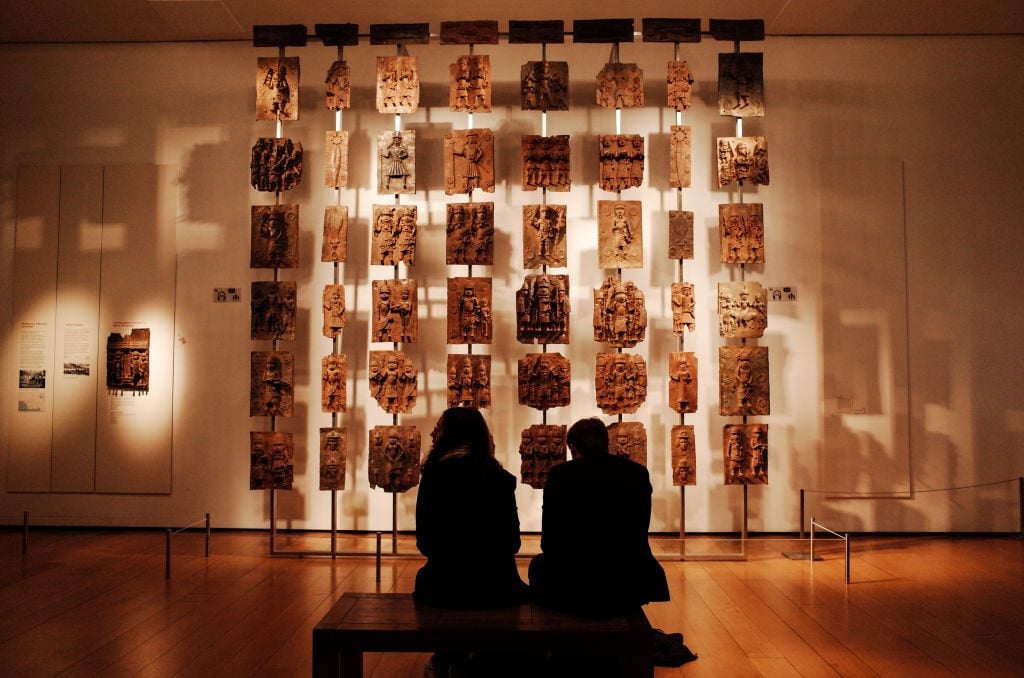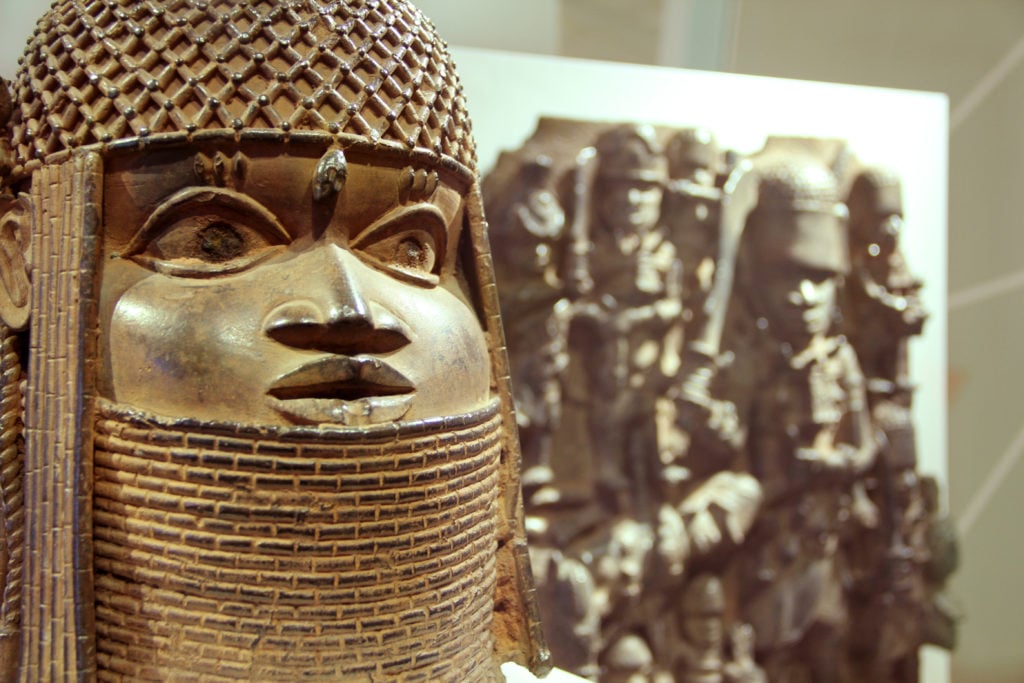Museums & Institutions
A Group of Nigerian Artists Have an Offer for the British Museum: Return the Benin Bronzes and We’ll Give You New Ones in Exchange
The British Museum has been noncommittal in its stance on repatriating the historic artifacts.

The British Museum has been noncommittal in its stance on repatriating the historic artifacts.

Taylor Dafoe

In a new proposal to urge the U.K. to repatriate looted Benin Bronzes, a group of contemporary artists from Nigeria are offering to exchange the historic artifacts for their own work.
During a press conference held in Benin City, the Ahiamwen Guild of artists and bronze casters unveiled a group of artworks on offer to the British Museum, which holds in its collection the largest and most significant cache of Benin Bronzes in the world. The famed plaques and sculptures adorned the royal palace of the Kingdom of Benin, in what is now Nigeria, before being looted by British troops in 1897.
Among the guild’s offerings are a square, six-and-a-half-foot bronze plaque that depicts notable events in Benin’s past, and a life-sized ram sculpture constructed from spark plugs, according to Reuters.
“We never stopped making the bronzes even after those ones were stolen,” Osarobo Zeickner-Okoro, a founding member of the Ahiamwen Guild, recently told the news outlet. “I think we make them even better now.”
In the ongoing debate over the restitution of the artifacts, the guild member continued, a colonial narrative has emerged that other-izes Nigeria. “You’ve portrayed our civilization as a dead civilization, you’ve put us among ancient Egypt or something,” he said.
Zeickner-Okoro noted that he has a meeting with curators from the British Museum’s Africa department. The institution did not immediately respond to a request for comment.

Exhibition view of “Looted Art? The Benin Bronzes” at MKG in Hamburg. Photo by Michaela Hille.
The bronzes, which are divided between numerous institutions worldwide—including the Ethnological Museum of Berlin, the Weltmuseum Wien in Vienna, and the Metropolitan Museum of Art in New York—have been at the center of a larger conversation about the repatriation of cultural heritage in recent years. Some have already been restituted to Nigeria; others will be soon. This April, most notably, Germany vowed to begin returning its many bronzes by next year.
But the U.K. has repeatedly resisted calls to follow suit. When asked about its position on restitution earlier this year, a representative of the British Museum said: “We believe the strength of the British Museum collection resides in its breadth and depth, allowing millions of visitors an understanding of the cultures of the world and how they interconnect over time—whether through trade, migration, conquest, or peaceful exchange.”
“The descendants of the people who cast those bronzes, they’ve never seen that work because most of them can’t afford to fly to London to come to the British Museum,” Zeickner-Okoro told Reuters.
“They have these catalogues, PDF copies of the catalogue from the British Museum, which they use to reference the work of their ancestors, and I think it’s so sad.”